1996
S-Z R
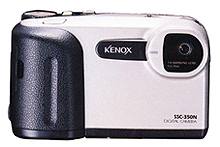
SAMSUNG
Kenox SSC-350N (Apple QuickTake 200, Fuji DS-7) - 1996. Manufactured
by Fuji. 640 x 480 pixel CCD. SmartMedia memory
card.
ISO 100. Shutter 1/4 to 1/5000 second. Fixed-focus 38mm
f/2.2
lens. (Some variation in marketing dates, pricing, programming
and
accessories between brands). MSRP $500.
https://www.digitalkameramuseum.de/en/cameras/item/samsung-ssc-350N
http://www.andybaird.com/qt200/
SAMSUNG
SSC-420N.
There have some reports of a 420N model shown by Samsung at technical
shows, but no information or photo is available. It may have
just been a mockup of a camera that was never produced. This was
quite frequent in the early days of digital photography as companies
often wanted to indicate that they were very competitive in that market
and that they had many future products under developement, when in
fact it was mostly wishful thinking. NOT MARKETED.
https://www.digitalkameramuseum.de/en/prototypes-rarities/item/samsung-ssc-420n
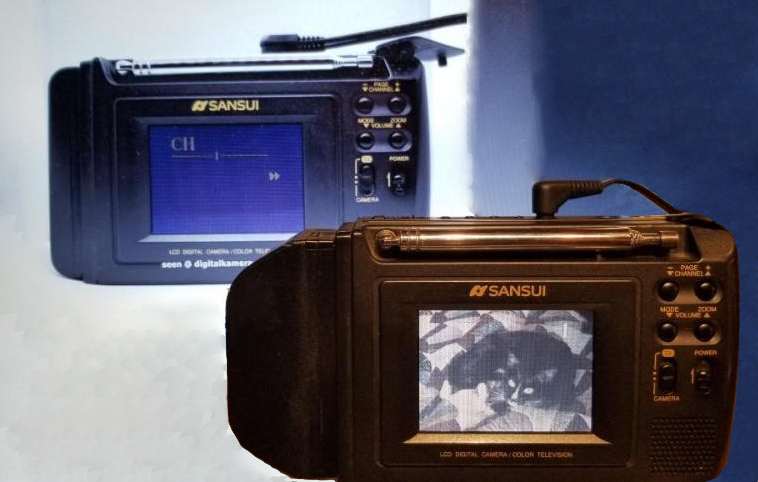

SANSUI CT0110 - 1996.
The CT0110 is a variation of the Orion Digisnap DS 21 by Orion Denki of
Japan and marketed in Europe by Orion Hungary (see our 1996 D-N
page). The unusual thing about the CT0110 is that it had a
built-in TV tuner! That's right, you could not only take pictures
with it, but watch your favorite televison programs when resting
between photo shoots. CCD 320 x 240 pixels. Shutter 1/60 -
1/16000 seconds. Lens f/2-f/8.
https://www.digitalkameramuseum.de/en/cameras/item/sansui-ct0110
https://audiokarma.org/forums/index.php?threads/strangest-sansui-ever.157200/
http://videokarma.org/showthread.php?p=3225788 (Must be a member to see photo)
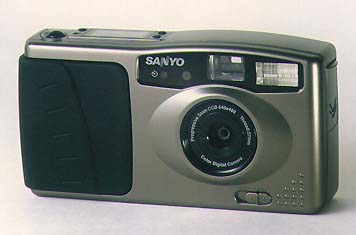

SANYO
VPC-G1 (Epson PhotoPC/Sierra Imaging SD640)- 1995/6. Sanyo was the manufacturer, and then licensed to Epson and Sierre Imaging. CCD
640 x 480
pixels.
ISO 130. Fixed-focus 43mm f/5.6 lens. Shutter 1/30 to
1/4.000
second. MSRP $499. (Very Rare on U.S. eBay)
http://camera-wiki.org/wiki/Sanyo_VPC-G1
https://www.digitalkameramuseum.de/en/cameras/item/sanyo-vpc-g1
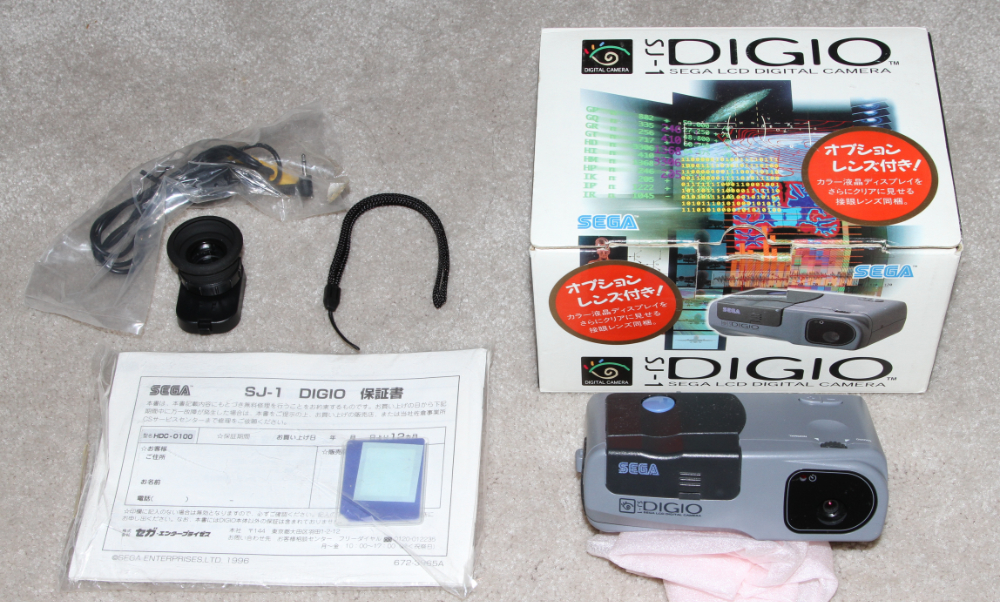
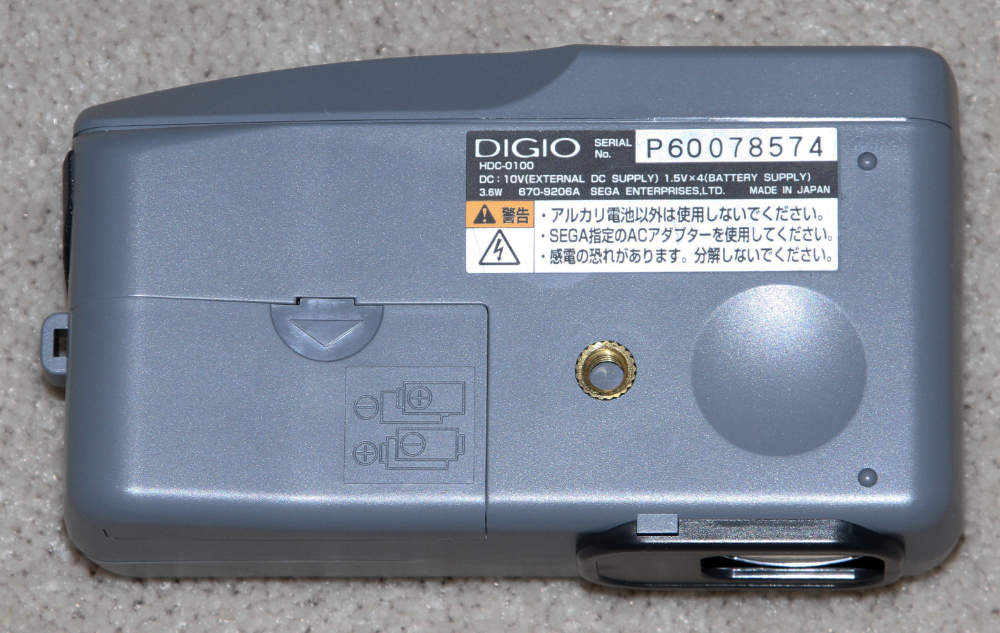
Sega SJ-1 HDC-1000A.
Label showing HDC-0100 on camera.
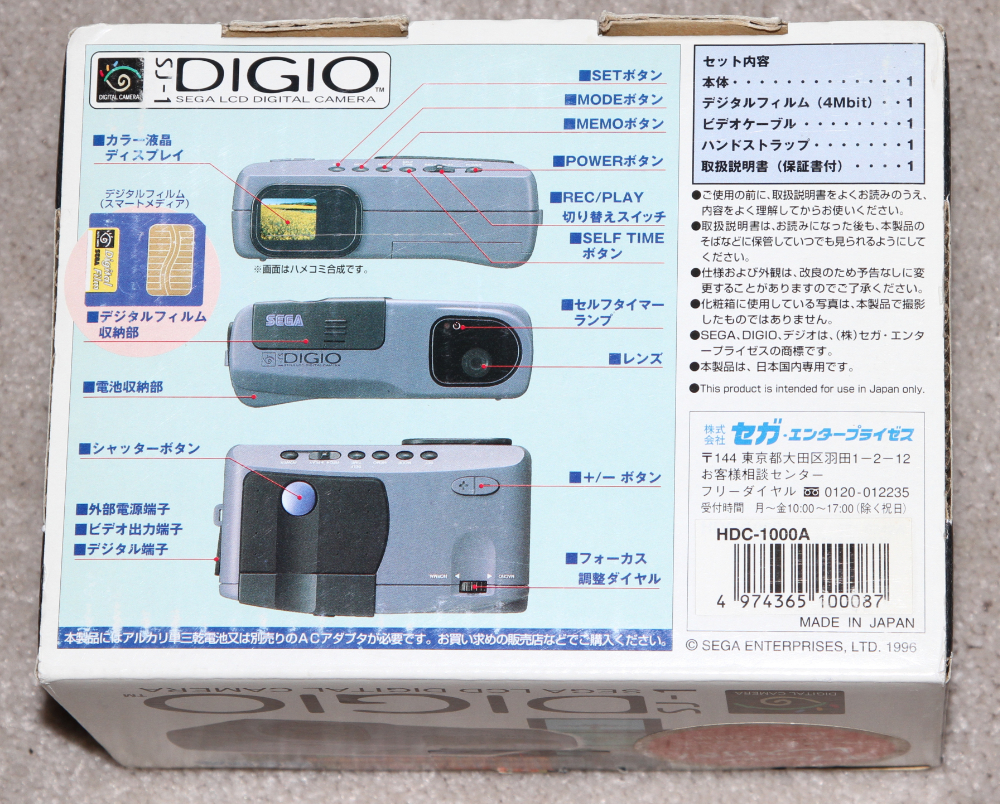

Label, bottom right, showing HDC-1000A on box. Bottom right hand corner shows date as 1996.
SEGA
Digio SJ-1 and HDC-1000A (HDC-0100 in Japan) - 1995/6/7. 320
x 240 pixel
CCD.
10mm f/1.9 lens. The SJ-1 above is the one sold as the
HDC-1000A. It has a clipon magnifier that the original SJ-1 did
not have. However, it and apparently all four Sega
versions of the SJ-1 (HDC-1000B and HDC-1000C of 1997), are marked
HDC-0100 on the bottom of the camera (see photo above). The image
files are in SJ1 format, which can only be read with the software that
comes with it. The SmartMedia card that comes with the Digio is 5Mbit
(640KB) and can store approx 20 pictures in "high quality." There
is no AutoFocus, but there is a manual focus that can do macro-level
focusing. The
camera
in our collection has several box labels stating HDC-1000A (see photo
above), but nothing on the camera itself other than HDC-0100.
Except for the clip-on magnifier and colors, all seem to be the same
camera. MSRP $300 for variations. (Rare on U.S. eBay)
http://segaretro.org/Digio_SJ-1
https://www.digitalkameramuseum.de/en/cameras/category/sega-2


SERIAL FLASH MODULE - 1996.
Introduced by NexCom Tecnnology, Inc. intended to be used where
other flash cards could not fit. At the time, they were claimed
to be the smallest flash memory cards available, with four of them in a
special protective sleeve taking up the space of a business card.
Capacities ranged from 128 KB to 4 MB. Used in some Relisys,
Mustek and Trust cameras. Product was not successful and is no
longer marketed.
https://obsoletemedia.org/serial-flash-module/#:~:text=The%20Serial%20Flash%20Module%20was,Relisys%2C%20Mustek%2C%20and%20Trust.
https://www.digitalkameramuseum.de/en/memorycards
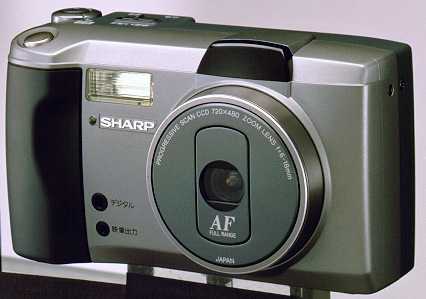
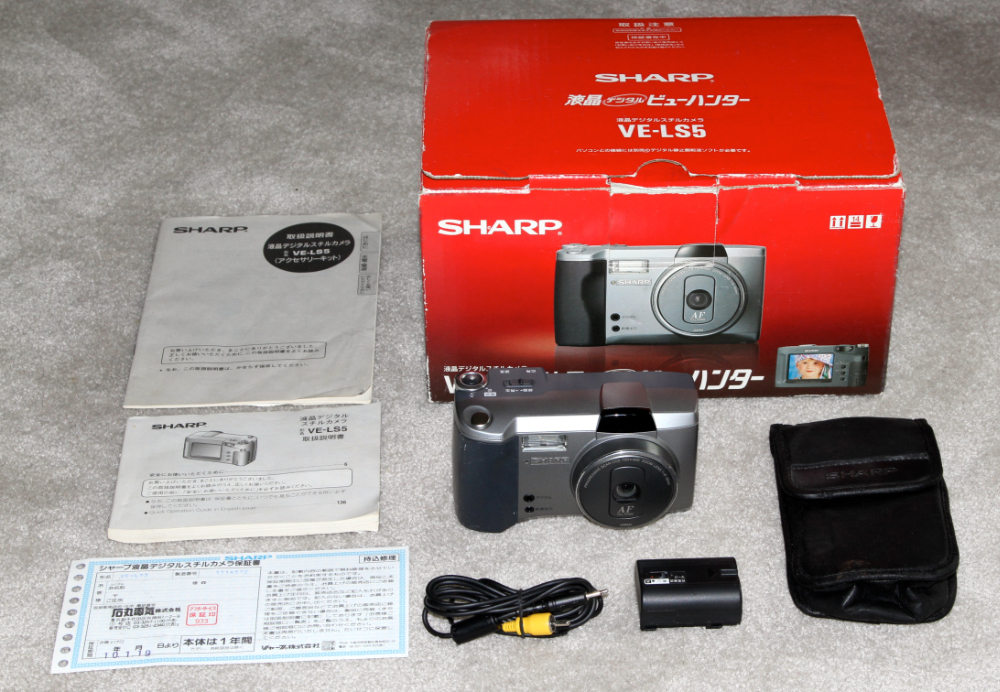

SHARP
VE-LS5 - 1996. 1/3-inch,
720 x 480
pixel
CCD. 4MB flash memory. Shutter 1/30 to 1/2000 second.
3X f/2.8 zoom 6mm to 18mm (actual) lens. Auto/manual focus, white
balance, self-timer, built-in flash. (Rare on U.S. eBay)
https://www.digitalkameramuseum.de/en/cameras/item/sharp-ve-ls5
http://camera-wiki.org/wiki/Sharp
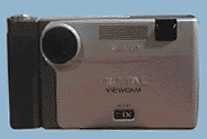

SHARP VL-DX1
Digital Still ViewCam - 1996. Camcorder
which stored video images on tape and up to 12 still images in 2MB
flash memory. 1/4-inch, 410K pixel CCD. 10X optical zoom,
43mm to 430mm, f/1.8 lens. Audio. Camera stores still
images separately on flash memory and video on tape. Still images
stored on flash memory can also be copied to any position on the tape. MSRP 220,000 Yen ($2028).
https://pc.watch.impress.co.jp/docs/article/961217/sharp.html
https://extinct-media-museum.blog.jp/archives/23917384.html
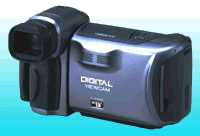
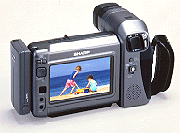
SHARP
VL-H4000 Digital ViewCam - 1996. Digital camcorder. To
obtain still images it was necessary to use an attachment, the
VR-SU 1. Imager 4.3-inch wide LCD equipped with a still image shooting mode. Aspect ratio of
16:9.
12X optical zoom f/1.6 autofocus lens. Audio. It
was possible to record about 700 still images on 60 minutes tape and
1,000 or more still images in LP mode. In addition, IrDA (infrared
communication) could transfer still images of 720 - 480 dots to a PC
using the optional still unit "VR - SU 1" and transfer software "VR -
PK 30 W". A 2MB flash memory was built into the still unit, and
still images could be stored in its memory at the time of
shooting. You could choose to save movies to tape and still
images to still unit. Also, it could be imported into the still
unit and only the necessary image could be selected and saved on the
tape. Sharp was the first company to adopt IrDA as a still image
transfer system of DV cameras. .
https://pc.watch.impress.co.jp/docs/article/960805/viewcom.htm
http://www.sharp-world.com/corporate/news/9612.html
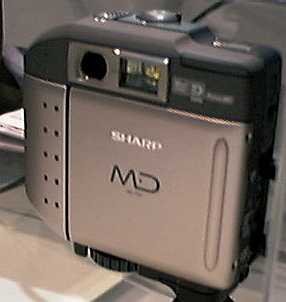

SHARP
MD-PS1 Minidisc Camera - 1996. 640
x
480 pixel CCD. Recorded up to 1000 640 x 480 images on one 140MB
MiniDisc. f/4 lens with normal and telephoto settings - 6mm
and 12mm (actual). Audio. Built-in flash.
Although Sony was the first to demonstrate a prototype MD camera (see
below), and was the inventor of the MD, Sharp was the first to market
an MD camera. (1997).
http://www.minidisc.org/sharp_md_camera.html
https://www.digitalkameramuseum.de/en/cameras/item/sharp-md-ps1
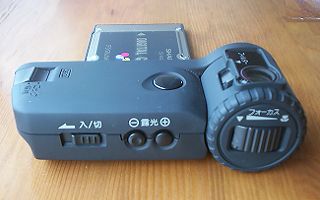
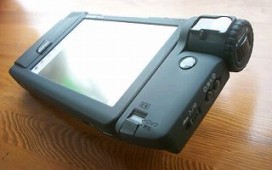
SHARP MI-10DC - 1996. Digital
camera extension card and camera for Sharp Zaurus PDA.
.27MP.
https://en.wikipedia.org/wiki/Sharp_Zaurus
https://pc.watch.impress.co.jp/docs/article/960509/zaurus.htm
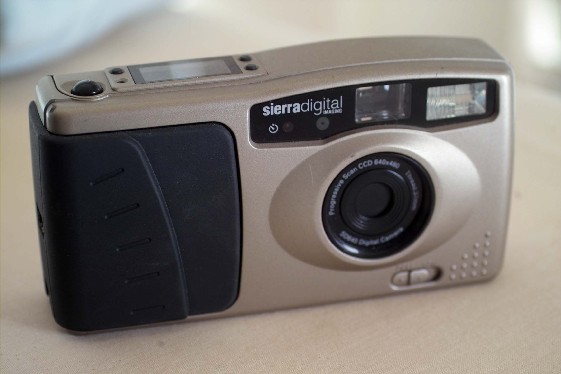
SIERRA
IMAGING SD640 (Epson PhotoPC, Sanyo VPC-G1) - 1996. 640
x 480 pixel CCD. 1MB internal memory.
Fixed-focus 43mm lens. Shutter 1/30 to 1/10,000 second.
Built-in
flash. Photo courtesy of Allen Rush. MSRP $499.
https://www.digitalkameramuseum.de/en/cameras/item/sierra-imaging-sd640
http://pc.watch.impress.co.jp/docs/article/960902/cp100.htm
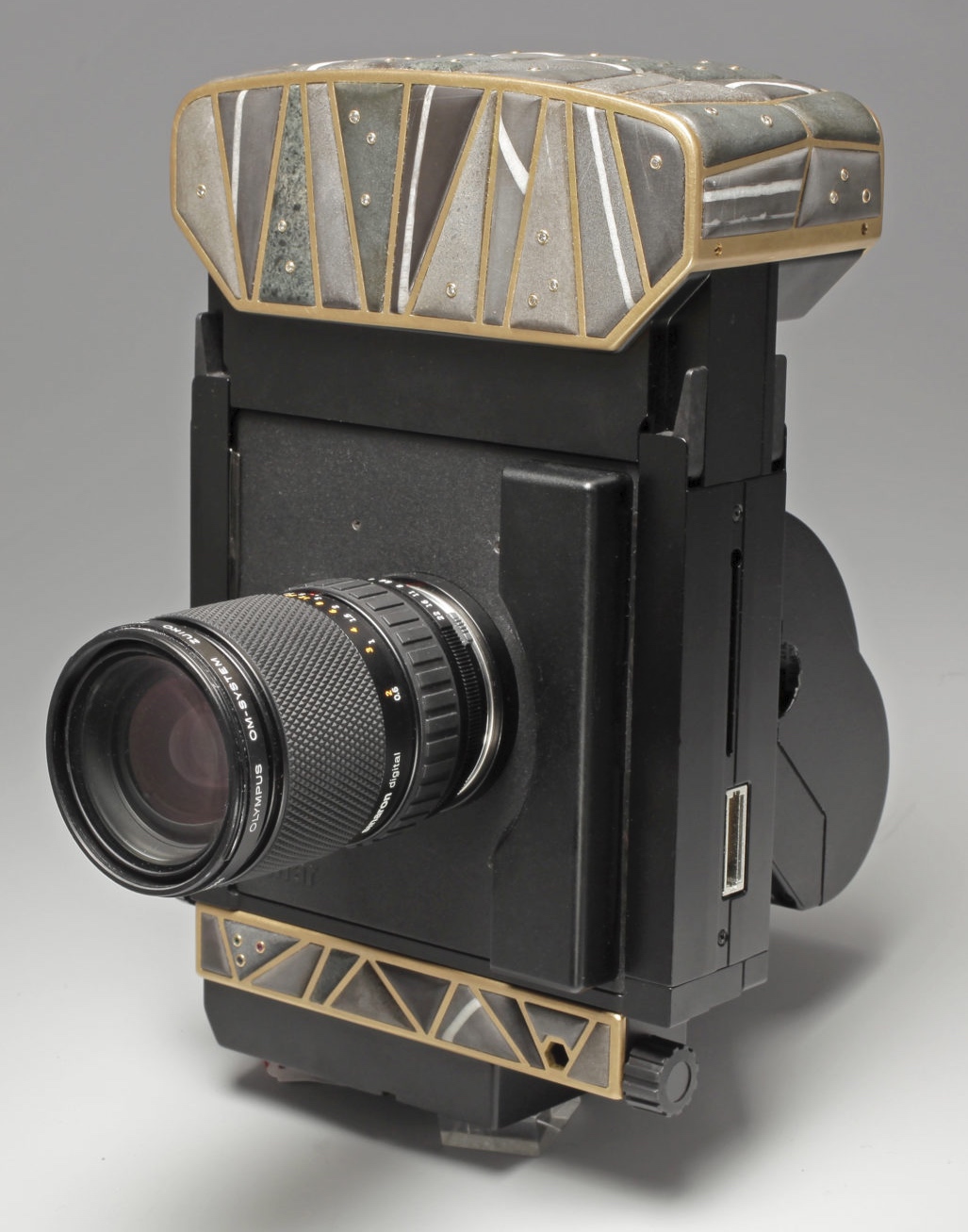
SINARCAM 50 DIAMONDS - 1996.
The above photograph and following information were provided through
the courtesy of Dennis van Hall of the Digital Camera Museum
(https://www.digitalkameramuseum.de/en/). The digital
Sinarcam was brought onto the market during the 1996 Photokina. This
works both as a stand-alone camera and integrated into a view camera
with an optical bench. The Sinarcam 50 Diamonds, which was produced in
five copies for the anniversary of the Sinar brand, is ornamented with
various precious stones, which symbolize the three basic colors, and
cut Rhine stones. There are only five copies, and instead of the
serial number they have a gold plate with the letters S, I, N, A or
R."
With Help from jewelry designer Roland Uhl, also from Switzerland, five
copies of the Sinarcam 50 Diamonds were made in 1998. One stone
(diamond) for every company year. To avoid stones from falling out,
they were embedded in hand-polished Rhine pebbles again set in 18 carat
gold. There was also a red ruby, a green Emerald and blue sapphire (the
three primary colors of light RGB). The camera cost 60,000 euros without a back. There were however two
matching models from Israeli Manufacturer Leaf. One for 24,000 euros
(DCB-LV, 4MP) or 30,000 euros (Volare, 6MP). Without tax.
Sinar is a
manufacturer of large-format cameras based in the canton of
Schaffhausen, Switzerland. In 1986, Sinar invested in Minneapolis (USA) and
created a company, Interscan, to carry out its first back scanner: this
laboratory prototype in 4 X 5 '' format was equipped with a 3-line
Kodak strip, RGB. It produced a digital image of 2000 X 3000
pixels, or 6 million pixels in 1986-1987. In 1998, Sinar became a
producer of digital backs for professional devices with a definition of
6 million pixels in 2000, then 16 million in 2001 to increase to 22
million pixels a year later.
https://www.digitalkameramuseum.de/en/blog-2
https://www.photoscala.de/2009/03/13/viel-vermischtes-11-09/
https://www.cameramuseum.ch/decouvrir/exposition-permanente/la-revolution-numerique/sinar-et-limage-numerique-1986/
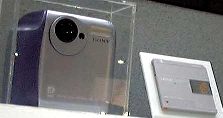

SONY
Picture MD - 1996. Prototype
of
the Sony MiniDisc camera that Sony marketed in 1997. Designed to use
the
Sony Data MiniDisc they developed in 1991. NOT MARKETED.
http://www.minidisc.org/part_Sony_DPA-300.html
https://www.digitalkameramuseum.de/en/prototypes-rarities/item/sony-picture-md
https://ja.wikipedia.org/wiki/%E3%83%9F%E3%83%8B%E3%83%87%E3%82%A3%E3%82%B9%E3%82%AF
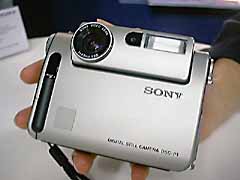
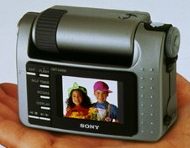


SONY
Cybershot DSC-F1 - 1996. 1/3-inch,
640
x 480 pixel CCD. Stored up to 108 640 x 480 images on 4MB of
internal
flash memory. Video out. First digicam with Infrared wireless image
transmission capability.
Fixed-focus and macro 35mm swivel lens. Built-in flash and
self-timer.
AE or shutter priority. Shutter 1/7.5 to 1/1000 second.
Lithium
Ion battery. The DSC-F1 could print via infrared directly
to
Sony's M55 color printer or record directly to PCs equipped with IrDA
support.
http://vintagecameralab.com/sony-dsc-f1/
https://www.digitalkameramuseum.de/en/cameras/category/sony-2
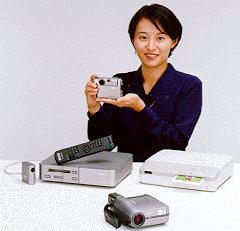
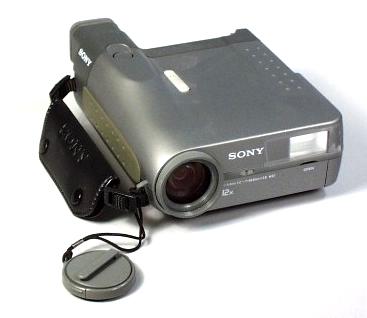
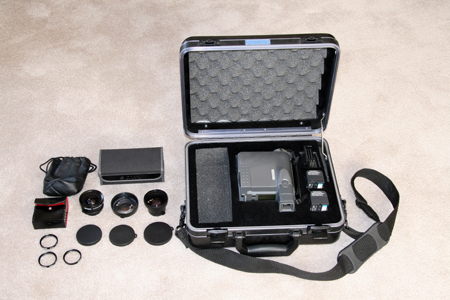

SONY
Cybershot DKC-ID1 (some sites use 1D1) and DKC-D5 Pro (Japan) - 1996.
1/3-inch, 768 x 576 pixel CCD. Used ATA-compliant Type II
PC
Cards for storage. A 10-MB card held 140 normal-mode images,
using
standard JPEG compression, or 40 fine-mode images. The 1D1/D5 Pro
had a camcorder-type LCD viewfinder and a 12x zoom f/5.4 lens that
covered
a range equivalent to 38mm to 460mm on a 35mm-film camera.
Exposure
controls included programmed EV compensation (+/-3EV in 1/3-stop
increments)
and an optional shutter-priority mode. ISO 100. Shutter
1/15
to 1/4,000 second. Memory ATA, PCMCIA (Type II). Auto and
manual
focus. Built-in flash. Lithium Ion battery.
MSRP
$1,795. Click on left image to see enlarged view of camera. (Rare on U.S. eBay)
https://www.dpreview.com/forums/post/65433709
https://www.digitalkameramuseum.de/en/cameras/item/sony-dkc-id1
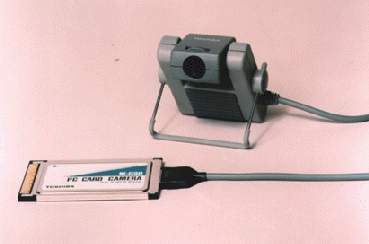

TOSHIBA IK-D30 - 1996. PC
card-based digital camera for use with portable PCs. The IK-D30 was the
first PC Camera to be designed for the CardBus Interface (a PC Card
Format) with 32-bit bandwidth. 640 X 480 pixel CCD. MSRP $500.
https://www.toshiba.co.jp/about/press/1996_11/pr1501.htm
https://jawawa.id/index.php/newsitem/toshiba-to-launch-pc-camera-1447893297
https://www.digitalkameramuseum.de/en/cameras/item/toshiba-ik-d30
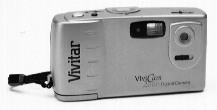
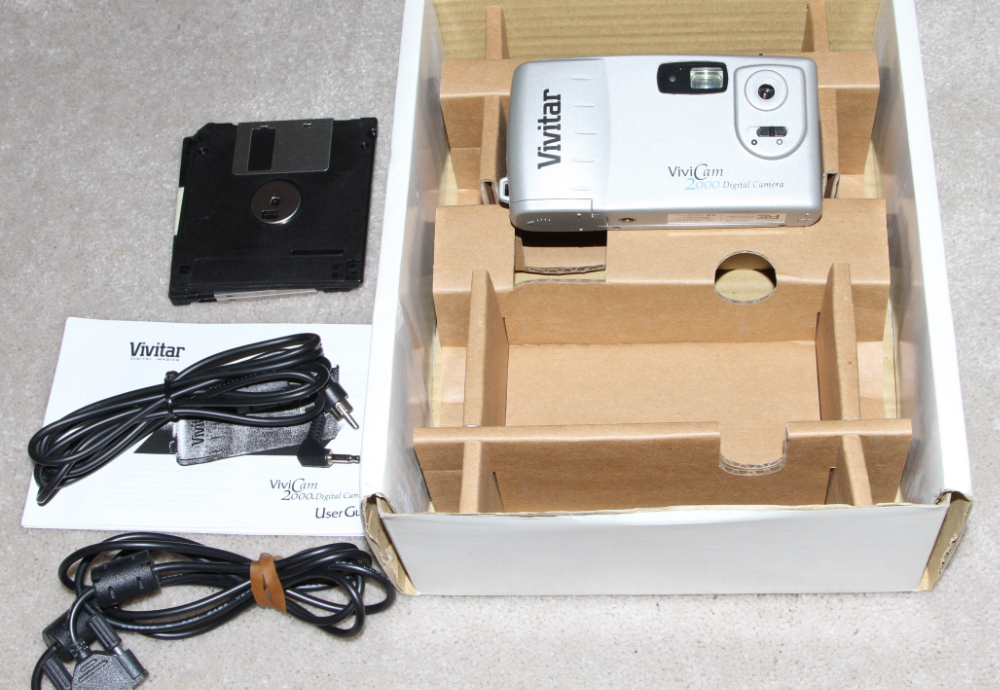

VIVITAR
ViviCam 2000 (also sold as Mustek VDC-100 in 1997) - 1996. Shown
at Comdex '96. 480
x 640 pixel CCD. Analog video output (NTSC). F/2,
fixed-focus
lens. Shutter 1/60 to 1/6,000 second. Built-in
flash.
MSRP $200.
https://www.digitalkameramuseum.de/en/cameras/item/vivitar-vivicam-2000
http://camera-wiki.org/wiki/Vivitar_ViviCam_2000
1996
S-Z


























